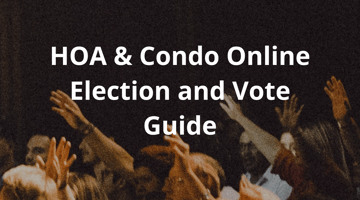Welcoming newly elected HOA board members is a pivotal moment for any homeowners association. These...
Navigating California SB 323: A Guide for Homeowners and HOAs
California's Senate Bill 323, commonly referred to as SB 323, marks a significant change in the regulation of homeowners associations (HOAs) within the state. Enacted to promote greater transparency and fairness within HOA operations, this legislation impacts election procedures, membership qualifications, and document handling practices. This guide aims to distill the complexities of SB 323 into key points, providing homeowners and HOA boards with a clear understanding of the law's requirements and implications.
Understanding SB 323: The Basics
SB 323, which took effect on January 1, 2020, introduces several amendments to the Davis-Stirling Common Interest Development Act—the civil code governing HOAs in California. The bill's primary focus is on enhancing democratic processes in HOA elections, ensuring that these communities are governed in a more open and equitable manner.
Key Provisions of SB 323
Election Reforms
One of the central aspects of SB 323 is the overhaul of election procedures. The law mandates that:
- Election by Secret Ballot: HOAs must conduct elections by secret ballot, with independent third parties overseeing the process to ensure fairness.
- Election Rules Disclosure: Associations are required to provide members with detailed election rules at least 30 days before an election.
- Candidate Qualifications: The law restricts HOAs from disqualifying candidates for arbitrary reasons. However, it allows for disqualification based on non-membership status or if the candidate has a criminal conviction that would prevent the association from purchasing fidelity bond coverage.
Member Qualification and Voting Rights
SB 323 also addresses member qualifications and voting rights, stipulating that:
- Equal Voting Rights: Voting rights must be distributed equally among members, with no individual or group holding disproportionate power.
- Membership List Access: HOAs are obligated to grant members access to the association's membership list for purposes related to association business, subject to privacy safeguards.
Financial Transparency and Document Handling
The bill enhances financial transparency and document handling practices by:
- Financial Document Distribution: Associations must make financial documents and other specified records available to members, improving transparency regarding HOA operations and financial status.
- Increased Document Retention Periods: HOAs are required to retain certain documents, including election materials and financial records, for longer periods, facilitating accountability and historical record-keeping.
Implications for Homeowners and HOAs
For homeowners, SB 323 provides greater involvement in the governance of their communities, ensuring their voices are heard and their rights protected. It encourages participation in elections and offers mechanisms to hold boards accountable for their actions.
HOAs, on the other hand, must adapt their practices to comply with the new regulations. This includes revising election procedures, updating bylaws to align with the law, and ensuring transparency in financial dealings and governance.
Navigating Compliance
Compliance with SB 323 requires a thorough understanding of its provisions and a proactive approach from HOA boards. Here are some steps to ensure compliance:
- Review and Update Governing Documents: Boards should work with legal counsel to review and update governing documents, including election rules and bylaws, to ensure they align with SB 323.
- Educate Members and Board Members: Providing education and training on the new requirements can facilitate a smooth transition and foster a culture of compliance.
- Implement Best Practices for Elections: Adopting best practices for conducting elections can help avoid disputes and ensure that elections are fair and transparent.
Conclusion
California's SB 323 represents a significant shift towards more democratic and transparent governance within HOAs. By understanding and implementing the key provisions of this law, homeowners and associations alike can contribute to creating more equitable and harmonious communities. Compliance not only ensures adherence to legal requirements but also promotes a culture of accountability and participation, which are essential for the health and sustainability of any community.
By staying informed and working collaboratively, HOA members and boards can navigate the changes brought about by SB 323, benefiting from a more open and fair governance model that respects the rights and voices of all members.



